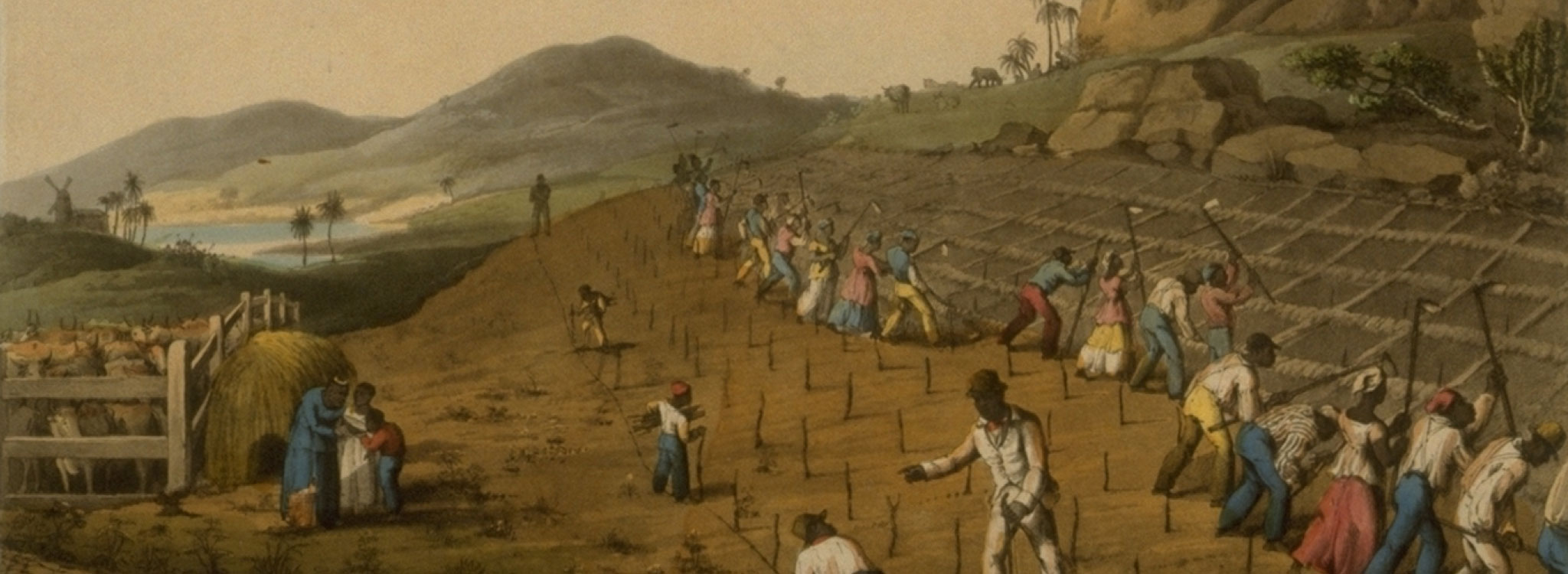Luis Xavier de Jesus was a West African–born Brazilian slave who purchased his own freedom and became a prosperous merchant.
Few records of de Jesus’s early life have emerged, but he apparently belonged to the Jeje nation, a classification for those from the former kingdom of Dahomey (present-day Benin). He was probably enslaved during military incursions into Dahomey by the kingdom of Oyo and brought to Brazil around 1800. After years as a wage-earning slave (escravo de ganho), de Jesus was able to buy his freedom in 1810. As a freedman, he adopted his master’s name and also copied his strategies to build a prosperous career in slave trading and money lending from his base in the port of Salvador de Bahia. By 1835, he owned eight houses and sixteen slaves.
Accused of collaborating in the 1835 slave and Muslim-led Malê Revolt in Salvador da Bahia, de Jesus was deported to Africa and forced to abandon all properties in Brazil. Fears of the “Haitianization” of Brazil via a Haitian Revolution-like rebellion by the enslaved and free people of color prompted the government to issue new law that enabled deportations without trials.
De Jesus and two hundred other Africans sailed to the slave-trading port of Ouidah, in the Gulf of Guinea. Arrangements were made with famous West African slave trader Francisco Félix de Souza to receive the returning men, including providing them with land. De Jesus soon resumed his profitable slave trading activities from Ouidah.
De Jesus never gave up the hope of recovering his Brazilian businesses and properties. He sent some of his slaves back to Bahia as correspondents and in an 1836 petition to the Bahia provincial assembly, he appealed on the grounds that he was a Christian and a Portuguese citizen who had fully adapted to Brazil’s culture. The provincial authorities counter-claimed that de Jesus had allowed Malê conspirators to meet in his house and been involved in other revolts before 1835. Despite several subsequent requests, de Jesus died in 1855 without being granted permission to return to Brazil. Unmarried and without heirs, he shared his Brazilian fortune with the slaves he freed in his will.
Being a manumitted slave, slave owner, prosperous freed African, slave trader, and possibly participant in a major slave revolt, de Jesus illustrates some of the many challenges and contradictions of the African diaspora in the Americas.
Bibliography
Bay, Edna G., and Kristin Mann. Rethinking the African Diaspora: The Making of a Black Atlantic World in the Bight of Benin and Brazil. London: Frank Cass, 2001.
Brito, Luciana da C. “Sob o rigor da lei: Africanos e Africanas na legislação baiana (1830–1841).” M.A. thesis, University of Campinas, 2009.
de Oliveira, Genaro Vilanova Miranda. "Jesus, Luis Xavier de." Dictionary of Caribbean and Afro-Latin American Biography , edited by Ed. Franklin W. Knight. , edited by and Henry Louis Gates Jr.. . Oxford African American Studies Center, http://www.oxfordaasc.com/article/opr/t456/e1079 (accessed Thu Sep 05 11:23:20 EDT 2019).
Falheiros, Elaine Santos. “Luis Xavier de Jesus: O ‘lugar social’ de Africanos libertos na Bahia do século XIX.” Em Tempo de História: Revista do Programa de Pós-Graduação em História da Universidade de Brasília 22 (2013): 32–55.
Reis, João José. Slave Rebellion in Brazil: The Muslim Uprising of 1835 in Bahia. Baltimore: Johns Hopkins University Press, 1993.
Author
Genaro Vilanova Miranda de Oliveira
Adapted by
James Almeida and Steven J. Niven
Contributing Institutions
Hutchins Center for African & African American Research, Harvard University, Cambridge, MA.
Oxford University Press (USA) African American Studies Center.





